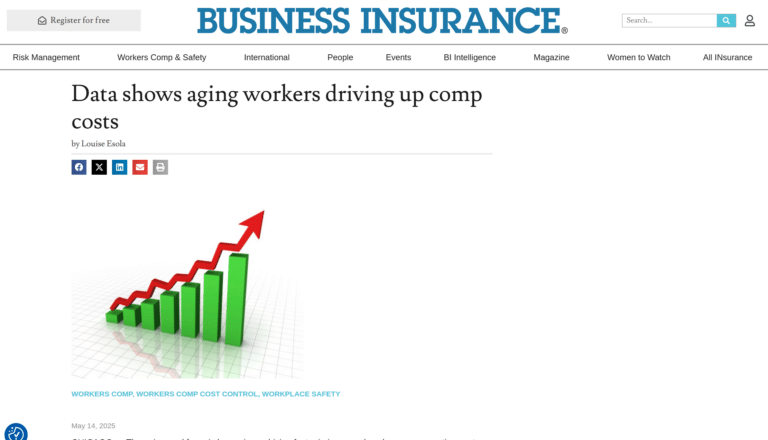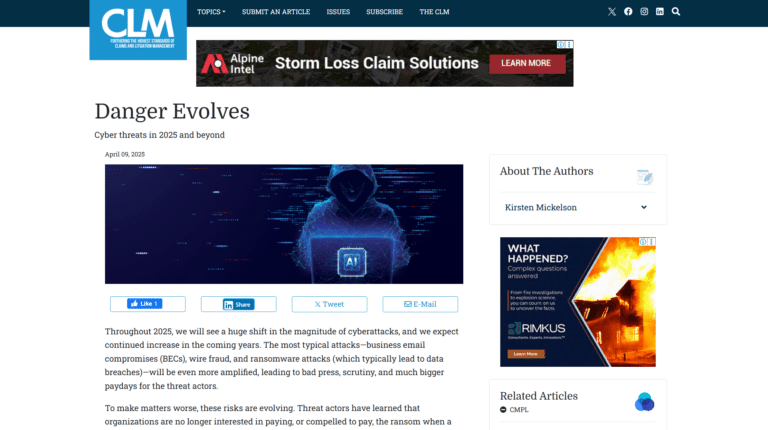For carriers looking to drive cost and operational efficiencies, outsourcing segments of their claims management services can open the door to wins across the business.
From reducing risk by leveraging specialist expertise, to enhancing profitability during surge periods by having additional people power where and when it’s needed, outsourcing presents a powerful tool.
For Mike Hessling, Gallagher Bassett North America’s Chief Executive Officer, reliably unlocking the full value of outsourcing calls for creating a unique relationship that respects the unique needs of the businesses involved—and, importantly, for recognizing that taking a “one-size-fits-all” approach generally leads to a “one-size-fits-none” outcome.
Hessling says: “Put simply, the claims experience is the fulfilment of an insurance carrier’s promise to its insureds. Though there are material benefits to outsourcing claims management services, your partner is ultimately a reflection of your culture and brand. This is a strategic decision, with real implications for an insurance carrier’s reputation and growth prospects.”
“At Gallagher Bassett, our strength in servicing our carrier clients with outsourced support comes not just from the efficiency of our systems, people and processes, but the way we apply them to individualize support to each carrier. Our approach is designed to give insureds a consistent experience that makes our team feel like a natural extension of their own.”
For insurance carriers preparing to outsource their claims management services, Hessling proposes a few key do’s and don’ts for successful outcomes:
WHAT TO DO
- LEAD WITH STRATEGY
Take time to understand your strategic requirements, beyond the basic questions of who can do the job and at what cost. What attributes of your claims program are strategic to your organization? Are you looking to demonstrate innovation and premium client service, or do you compete on a no-frills, low-cost value proposition? Do you plan to grow in new industries or lines of coverage, or are you merely looking to maintain your current client and claims portfolio? Knowing how you compete and where you are looking to go will help you select the right partner for the journey.
- FOCUS ON THE OUTCOMES
It’s easy to fall into the trap of focusing on claim handling expense as a primary basis for evaluation. But the real impact of selecting a partner for claims management is their ability to drive superior outcomes on dimensions like cost, duration, litigation rate and reserving. Make this an explicit—and early—part of your evaluation process, providing data for analysis and interpretation. A partner’s analytic approach and ability to articulate how they can deliver better outcomes will speak volumes about their focus and capabilities.
- CONSIDER YOUR TOTAL COST
An outsourcing decision should be based on understanding the true internal cost of providing the service yourself. Costs relating to continuing investments in systems and innovation, management of ancillary solution providers, compliance with regulatory requirements and maintaining recruiting and training resources are often overlooked when comparing “cost to own” versus “cost to outsource.” Claims management partners can often provide an end-to-end solution at a lower cost and higher quality, because of their ability to focus on investments and operate at a larger scale than many in-house claim organizations.
- EVALUATE CURRENT AND FUTURE CAPABILITIES
As stated previously, selecting a claims management partner is a strategic decision. Your partner will become tightly integrated with your business operations and client relationships. As such, it is imperative that you understand current capabilities but also the strategic vision, direction and future plans of prospective partners. Engage in strategic discussions to understand a partner’s roadmap, while also looking at recent initiatives to assess their track record in executing on enhancements.
WHAT NOT TO DO
- BASE CURRENT DECISIONS ON PAST EXPERIENCES
The claims management marketplace is dynamic. Some organizations are investing and innovating rapidly, others are preserving cash flow or directing it to service areas outside the scope of your outsourcing evaluation. Be careful not to let past perceptions of providers cloud your judgment when selecting a future strategic partner.
- CONFUSE ELEGANT SALESMANSHIP FOR EXCEPTIONAL EXECUTION
Businesses spend considerable time and energy honing their sales proposals and presentations. Choosing a claims management partner is often a career-defining decision that warrants looking beyond the pitch. Take time to understand your partner’s company culture; meet the team who will be serving you day to day. Test their understanding of your business and strategy. Build confidence in the team you will be working with for years to come.
- FORGET YOUR ROLE IN THE NEW PROGRAM
Inserting an outsourced partner can provide material benefits for your business. However, you remain ultimately accountable for the success of the relationship. Consider what business processes need to be integrated, such as policy issuance to enable coverage verification. Determine the role you intend to play in oversight of the program and on select claims. Be explicit on your preferred interaction model with insureds and agents. Make sure prospective partners take the time to develop a shared vision for your future operating model.
- TREAT NEGOTIATIONS AS A ZERO-SUM GAME
Once you’ve selected your desired partner, you will inevitably enter into negotiations over the economics of your relationship. Remember that this is a strategic, long-term partnership for your business. It requires a financially sound partner with the means to invest in their people, processes and technology. Once you’ve selected your partner, you and your insureds have a vested interest in their ongoing success and investments.






